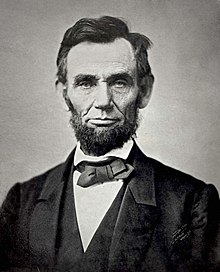“Whether you think you can or you can’t, you’re right.”- Henry Ford
Henry Ford was on to something when he said those words. Something so powerful there is even a scientific name for it: The Placebo Effect. One of the early scientists to identify the power of placebos was Dr. Henry K. Beecher. In his 1955 publication The Powerful Placebo, Beecher describes how soldiers receiving saline solution instead of morphine still experienced pain releif. He further went on to explain how this effect was observed 35.2% of the time. That is powerful medicine, but what does it have to do with law?
At the end of the day, an attorney has to be able to convince a jury that they are right. More importantly, the attorney must believe in their ability to do that. It is easy to go with the flow and say “that is a crummy case” or give up when pitted against forces that loom large in comparison. But think of Victor E. Frankel, a noted neurologist and psychiatrist who survived the holocaust concentration camps. In his book, Man’s Search for Meaning, Dr. Frankel describes one prisoner who had a vision, in February of liberation on March 30th, but died on March 30th when the liberation did not come. Frankl writes,”to those who know how close the connection is between the state of mind of a man – his courage and hope, or lack of them – and the state of immunity of his body will understand that the sudden loss of hope and courage can have a deadly effect.” Only when the man gave up his belief in liberation did he succumb to sickness and death.
I am not saying all you have to do is believe you have a case or believe you will win and let the money roll in. Certainly there are lawyers who don’t really believe in their case and still win. And actually there is a real need for that in criminal law where a client may confess to their attorney that they are, in fact, guilty of the crime. The lawyer is required to keep that attorney-client communication confidential and make the State prove it’s case. If belief in innocence was needed, then there would be a lot of unrepresented defendants. (Representing individuals attorneys know are guilty in a later post) What I am saying is that an attorney who can sense a wrong, and believes in their ability to fix it has a better chance (maybe 35.2%) at actually fixing it.
I think about that when I take on a case. I did that when I took on one of my first cases in law school. A foreclosure case. I read through close to one thousand pages of security transaction documents to find the one piece of information that helped me right a wrong. I believed in my abilities when I took on domestic violence cases as a prosecutor. Instead of cases being dismissed when it was a male victim, or when the female victim didn’t show, we tried them. Sometimes the defendant was acquitted. But the fact that there was even one conviction of those types of cases was virtually unheard of.
So, find a lawyer that believes in their abilities. Not overconfident, but one that is willing to dig a little deeper before throwing in the towel. Someone that has that american can-do attitude that Henry Ford expressed over 100 years ago. Because even if your attorney doesn’t have those abilities, the placebo effect is real and might help win your case.




